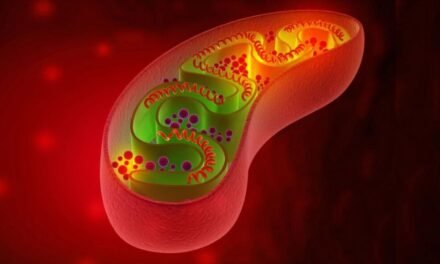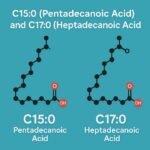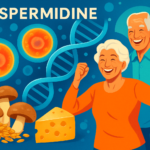Introduction
In the quest for longevity and optimal health, scientists have turned their attention to a fascinating group of proteins called sirtuins. Sirtuins have emerged as key regulators of various biological processes, including ageing, metabolism, and stress response. In this article, we will delve into the world of sirtuins, exploring their functions, mechanisms, and potential benefits for human health. Join us on this captivating journey as we uncover the secrets behind sirtuins and their impact on longevity.
Table of Contents
1.What Are Sirtuins?
2.The Role of Sirtuins in Aging
3.Sirtuins and Cellular Metabolism
4.Sirtuins and Stress Response
5.How Sirtuins Work: NAD+ and Epigenetic Regulation
6.Sirtuins and Longevity
7.Potential Benefits of Activating Sirtuins
8.Natural Ways to Boost Sirtuin Activity
9.Sirtuins and Age-Related Diseases
10.Sirtuins in Current Research
11.Future Directions: Sirtuins as Therapeutic Targets
12.Conclusion.
13.FAQs
What Are Sirtuins?
Sirtuins are a family of proteins that play a crucial role in cellular processes related to ageing, metabolism, and stress response. They were first discovered in yeast, where they were found to regulate the lifespan of the organism. Since then, sirtuins have been identified in various species, including mammals, and have attracted significant attention from the scientific community.
The Role of Sirtuins in Aging
One of the most fascinating aspects of sirtuins is their involvement in the ageing process. Research has shown that sirtuins have the ability to extend the lifespan of model organisms such as yeast, worms, and flies. They achieve this by activating various cellular pathways that promote longevity and delay age-related decline. By modulating gene expression and regulating DNA repair mechanisms, sirtuins help maintain the integrity of the genome and protect against age-associated damage.
Sirtuins and Cellular Metabolism
Beyond their impact on ageing, sirtuins also have a profound influence on cellular metabolism. They regulate key metabolic pathways involved in energy production, such as glucose metabolism and fatty acid oxidation. Sirtuins can enhance mitochondrial function and improve cellular energy balance, which may have implications for conditions like obesity, diabetes, and metabolic syndrome.
Sirtuins and Stress Response
In addition to their role in ageing and metabolism, sirtuins are vital players in the cellular stress response. When cells are subjected to various stressors, such as oxidative stress or DNA damage, sirtuins orchestrate a protective response. They activate defence mechanisms that promote cell survival and repair, thus safeguarding the overall health and resilience of the organism.
How Sirtuins Work: NAD+ and Epigenetic Regulation
To carry out their diverse functions, sirtuins require a molecule called nicotinamide adenine dinucleotide (NAD+). NAD+ serves as a coenzyme that facilitates the enzymatic activities of sirtuins. By utilising NAD+, sirtuins can remove specific chemical groups from proteins, a process known as deacetylation. This deacetylation modifies protein function and influences gene expression, thereby impacting cellular processes and overall health.
Sirtuins and Longevity
Given their association with lifespan extension in model organisms, researchers have been intrigued by the potential of sirtuins to promote longevity in humans. While more studies are needed to fully understand their effects in humans, initial research suggests that sirtuins may play a role in maintaining healthspan, the period of life characterised by good health and functionality.
Potential Benefits of Activating Sirtuins
Activating sirtuins holds promise for several potential health benefits. Studies have indicated that sirtuin activation may enhance cellular protection, improve metabolic health, and increase resistance to age-related diseases. Furthermore, sirtuin activation has been associated with improved cognitive function and neuroprotection, suggesting potential applications in conditions like Alzheimer’s disease.
Natural Ways to Boost Sirtuin Activity
While the development of specific sirtuin-targeting drugs is still underway, certain lifestyle factors and dietary choices may help boost sirtuin activity naturally. Regular exercise, calorie restriction, and intermittent fasting have been linked to increased sirtuin levels. Additionally, certain compounds found in foods, such as resveratrol, found in red wine, and quercetin, found in fruits and vegetables, have been suggested to activate sirtuins.
Sirtuins and Age-Related Diseases
Age-related diseases pose significant challenges to healthcare systems worldwide. Sirtuins offer potential therapeutic avenues for combating age-related conditions, including cardiovascular diseases, neurodegenerative disorders, and cancer. By targeting the underlying mechanisms of these diseases, sirtuin-based therapies could revolutionise the treatment and prevention of age-related ailments.
Sirtuins in Current Research
Scientists are actively engaged in unravelling the complexities of sirtuins and their implications for human health. Ongoing research focuses on understanding the precise mechanisms by which sirtuins influence ageing and disease processes. Furthermore, efforts are underway to develop pharmacological interventions that modulate sirtuin activity for therapeutic purposes.
Future Directions: Sirtuins as Therapeutic Targets
As our knowledge of sirtuins expands, the potential for targeting these proteins for therapeutic purposes becomes increasingly evident. By harnessing the power of sirtuins, scientists hope to develop interventions that can delay ageing, mitigate age-related diseases, and improve overall health and well-being. Continued research in this field will undoubtedly pave the way for innovative therapies and interventions.
Conclusion
Sirtuins have captivated the scientific community with their ability to regulate ageing, metabolism, and stress response. These fascinating proteins hold immense promise for understanding the mechanisms underlying longevity and age-related diseases. By elucidating the intricate workings of sirtuins, scientists are paving the way for groundbreaking advancements in the field of ageing research and potential interventions to promote healthier and longer lives.
Frequently Asked Questions
Learn How it Works!
Can sirtuins reverse the ageing process?
While sirtuins have shown the ability to extend lifespan in model organisms, their role in human ageing is still being studied. It is important to note that ageing is a complex process influenced by various factors, and there is no single solution to reverse it entirely.
Are there any side effects associated with sirtuin activation?
Currently, the long-term effects and potential side effects of sirtuin activation are not fully understood. Further research is needed to determine the safety and efficacy of sirtuin-based interventions.
Can sirtuin activation replace a healthy lifestyle?
Sirtuin activation should be viewed as a complement to a healthy lifestyle rather than a replacement. Maintaining a balanced diet, regular exercise, and other healthy habits are essential for overall well-being.
Are there any specific dietary supplements that activate sirtuins?
While certain compounds found in foods, such as resveratrol and quercetin, have been suggested to activate sirtuins, the evidence is still limited. It is advisable to consult with a healthcare professional before starting any dietary supplements.
How can I incorporate sirtuin-boosting habits into my daily routine?
Simple lifestyle changes, such as engaging in regular physical activity, practising intermittent fasting, and consuming a balanced diet rich in fruits and vegetables, can potentially boost sirtuin activity. It is important to adopt these habits in consultation with a healthcare professional.










